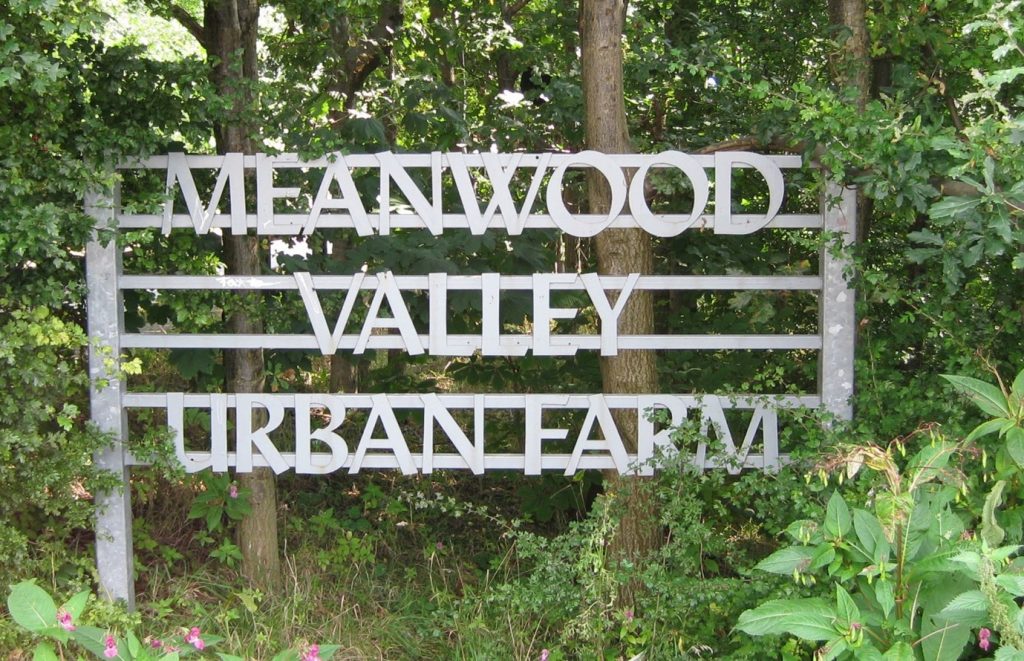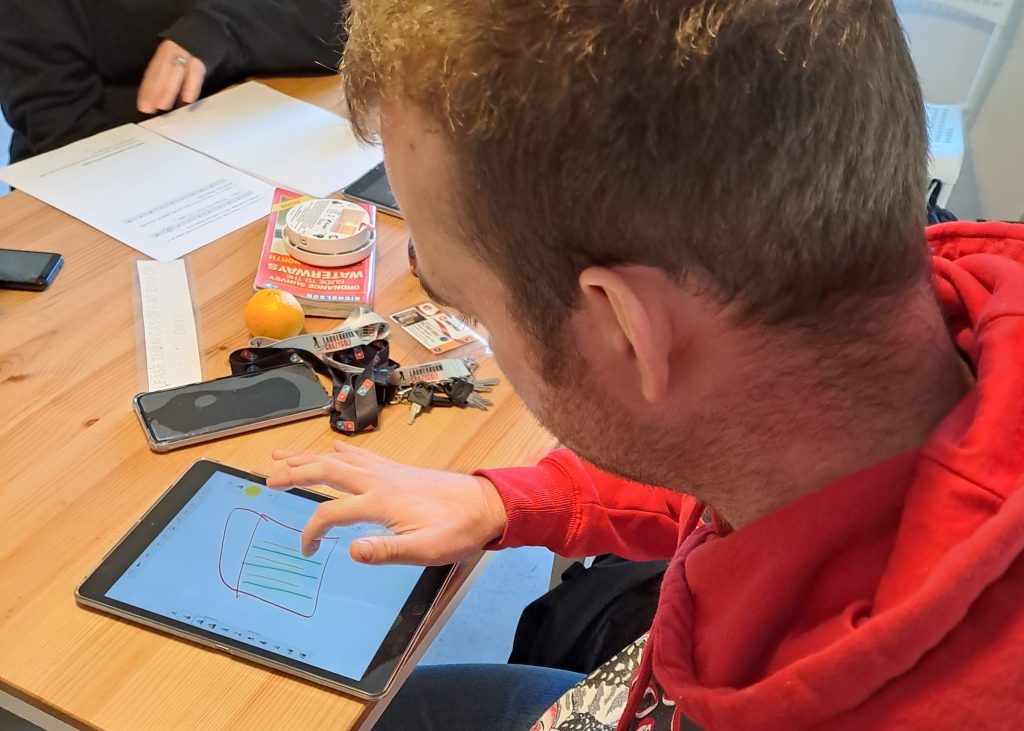Turning Lives Around (TLA) is a charitable organisation that works to prevent homelessness and empower people to believe that they can change their lives and live independently. Over the last three years the organisation has worked with 100% Digital Leeds to embed digital inclusion across their service by:
- providing staff with digital inclusion training
- providing client-access wifi across the service
- reconditioning old staff smartphones to be gifted to clients without devices
- gifting free data, calls, and texts via the National Databank
- addressing eSafety as part of standard needs assessments
As a result of these innovations TLA clients have easier access to services such as health, education, and benefits, the impact of which has been improved independence and wellbeing for clients, and more efficient use of staff time.
An overview of the organisation
TLA provides supported accommodation for people with multiple disadvantage such as homelessness, offending, mental health needs, and substance misuse. Provision includes self-contained flats, shared community accommodation and Intensive Support Environments (ISEs). As well as housing solutions, TLA offers support for training and employment, self-care, health and wellbeing, budgetary and financial advice, peer mentoring, volunteering and educational opportunities, and recovery support, including harm reduction and joint work with drug and alcohol agencies. TLA has around 150 staff.
Supporting digital access for vulnerable clients
TLA got in touch with 100% Digital Leeds for support on how they might provide wifi in their settings following feedback from clients that access to the online world would be beneficial. Within the organisation there was some concern around the risks wifi might pose to vulnerable clients and the low digital skills and confidence of staff added to this hesitancy.
“There were concerns people could be exploited online, would be able to buy drugs online, young people might be bullied online, people wouldn’t be able to keep themselves safe online. Because our role is very focussed on safeguarding and risk the question was, do we do this or do we not? Is it going to be helpful or is it not?”
Kerri Walker, Senior Housing Support Worker, Turning Lives Around.
TLA ran client consultation to gather perceptions of the potential pros and cons of having access to wifi. They heard from the young people’s provision, alcoholic women’s provision, and men’s provision, establishing why that client group would want wifi, what they would use it for, what the risks might be, and how those risks could be managed. Key Workers were encouraged to discuss similar issues with clients as a client-led service. Suggested benefits included accessing services, creating CVs and applying for jobs, and managing the Universal Credit move to online journals.
“It was a big step and it was a little bit scary but we thought, we’ll try something.”
Kerri Walker, Senior Housing Support Worker, Turning Lives Around.
Taking a test and learn approach
Before committing to finding the funding to install wifi TLA trialled providing connectivity to the young people at their Seacole Scheme by borrowing 6 4G iPads from the previous 100% Digital Leeds Tablet Lending Scheme. Guidelines to protect clients and look after the equipment were coproduced with clients and embedded within house rules. This included time limits on usage, usage limited to communal areas allowing staff to monitor, usage limited to certain times of day supporting clients to stick to healthy routines, and fair use policies to ensure the equipment was shared. The benefits to clients were seen straight away.
“It worked really well and we soon started to see really positive benefits. Staying in touch with friends and family, independently managing online journals and bidding on properties, taking pictures and doing artwork and all sorts. They looked after the equipment and followed the rules because they respected the staff and they respected the opportunity they were being given, and they respected the amount of trust we put in them.”
Kerri Walker, Senior Housing Support Worker, Turning Lives Around.
The learning and impact from the tablet learning pilot was used to secure £10,000 funding for to TLA buy iPads for use across the whole service. The iPads were given to Key Workers to use with clients, supporting clients to develop their digital skills and confidence and be more independent. Staff received digital inclusion training from 100% Digital Leeds and less confident staff members attended additional training on how to use the devices, how to support accessibility features, and installing useful apps. As a result clients were able to better support themselves and staff capacity was freed up for other things.
“Previously we were bringing clients into the office to use staff computers. We were doing a lot ‘for’ people and not ‘with’ people so they weren’t really learning anything. Now clients have the opportunity to develop their skills and do it themselves”.
Kerri Walker, Senior Housing Support Worker, Turning Lives Around.
A focus on safeguarding
Staff engaged clients with conversations about online safety and privacy, especially around social media, scams, and online exploitation. Existing support plans were adapted to put more focus on risks of online exploitation, alongside physical and sexual exploitation. Staff are made aware of popular scams that clients might be vulnerable to, such as Universal Credit scams on Snapchat, and are encouraged to discuss with clients during key work sessions. Clients who have experienced domestic violence are supported to understand how to manage their social media to avoid being found by their abuser. This is now a standard conversation that takes place with all clients and every client now has a robust online safety plan as part of their safeguarding plan.
“There were worries people would be able to buy drugs online, but we took the attitude of, they’re going to source them from somewhere. You can go out and shout and you’ve got a dealer at your door. But then you flip it around and, yes, they’re drug addicts, but now they can order their prescription online, so they can access methadone in 20 minutes. They can more easily access rehab. Instead of long phone assessments and multiple waiting lists clients can input their information online and the process is much quicker.”
Kerri Walker, Senior Housing Support Worker, Turning Lives Around.
Providing access to wifi across the service
The learning and impact of the expanded iPad trial gave TLA the evidence needed to secure external funding to install wifi across the service. The initial investment costs were secured as part of a larger funding application and costings for ongoing digital provision is now build in to core funding.
Wifi has been made available in all 24/7 residential provision. Clients have access in private rooms and communal spaces, including the gardens. Old staff smartphones are refurbished and gifted to clients that don’t have their own device, along with data from the National Databank. Staff signpost clients to equipment gifting or loan from education settings or via provision for children in care.
Having access to wifi has allowed people to stay in touch with family, access support from partner services, continue formal education, and use online tools to be more independent. Allowing clients access to the internet has positively impacted on staff capacity as people are supported to do things for themselves so staff don’t have to do it for them. Clients are also better able to use digital tools to manage their mood and mental health and TLA are seeing fewer incidents as a result.
“We’ve seen a massive decrease in antisocial behaviour and a huge increase in engagement. YouTube gives our clients access to the world. It’s made them so much more knowledgeable about the world. The internet has sparked such creativity and given people the space to follow their own interests. They’re learning based off their own back, not because someone has told them to. I would never take that wifi away, it’s a massively positive thing.”
Kerri Walker, Senior Housing Support Worker, Turning Lives Around

